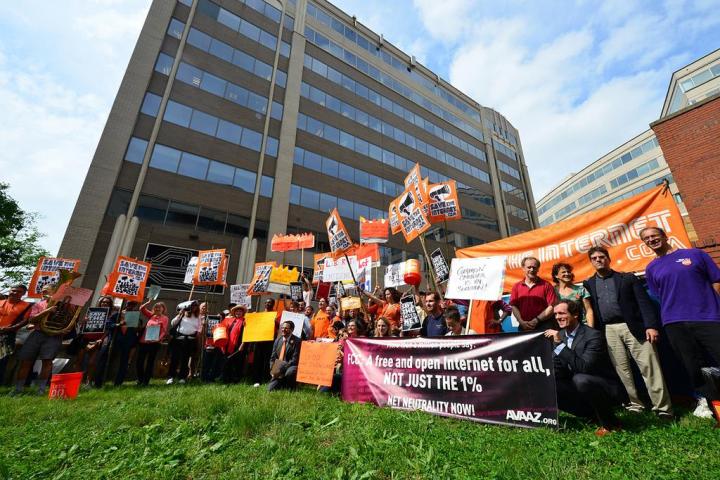
The FCC’s proposed plan would allow Internet service providers (ISPs) like Comcast and Verizon to charge some companies for access to faster connections. It has spurred opposition from a wide array of companies and advocates of a free and open Internet, from major corporations like Netflix and Google, to consumer advocates, and throngs of individual users. The opponents fear the “fast lane” proposal’s pay-for-priority system unfairly favors the rich and powerful, and could lead to the end of the Internet in its current form.
Netflix outlined those fears in its submission, and took things even further, raising concerns that the system would create a motive for ISPs to halt infrastructure in order to extort payment from those who want to reach their subscribers, like mafiosos.
“Allowing ISPs to monetize congestion will likely create more congestion, threatening the current model that has made the Internet so successful,” the submission states.
“Furthermore, pay-for-priority arrangements undermine an ISP’s incentive to continue building capacity into its network. Prioritization has value only in a congested network. After all, there can be no “prioritization” in an uncongested, best-efforts network; all (data) packets necessarily move at the same speed. As the Commission has acknowledged, this creates a perverse incentive for ISPs to forego network upgrades in order to give prioritization value.”
Throughout the submission, Netflix continued its condemnation of both Verizon and Comcast, two ISP rivals it has engaged in several public spats with. The report again puts the blame on the massive communications giants for slowing its video packets at the so-called “last mile,” or the point at which network backbones branch off to subscriber homes.
“Discrimination and unfair access charges at interconnection points are not theoretical,” the report reads. “As the Commission is aware, Netflix and its members have been impacted by interconnection congestion, particularly on Comcast’s and Verizon’s networks.” The submission shows data which implicates Comcast for degrading Netflix video to “nearly VHS level,” and claims Verizon’s failure to upgrade its networks is responsible for causing Netflix data to enter the network at a “drip-like pace.”
Netflix has entered into agreements with both Comcast and Verizon to pay the providers for a more direct connection to their subscribers. The most recent back and forth debate between Netflix and Verizon had both companies pointing the finger at each other for the snail’s pace at which Netflix video is transferred on Verizon’s FiOS service. Apart from its call for Net Neutrality, Netflix used the FCC submission to get in more jabs at Verizon for the issues.
“There can be no doubt that Verizon owns and controls the interconnections that mediate how fast Netflix servers respond to a Verizon Internet access consumer’s request,” the submission states.
Whether or not Netflix is as altruistic as it appears to be is also up for debate, however. While it has been a major proponent for keeping the Internet fair and open for all, it also has used the debate to attack its ISP foes at every turn, mixing the issue of Internet fast lanes, with the argument over who is to blame for its own slowing streaming speeds at the last mile.
While Netflix claims it holds no responsibility for the issues, a recent report from Light Reading points out that it is likely that the company could increase streaming speeds by purchasing more transit from its third-party delivery system to help alleviate the issue. Instead, Netflix prefers to push its Open Connect system, which is designed to connect its servers directly to Internet service providers. Verizon and Comcast have both refused to use Open Connect, while ISPs that have adopted it, like Cablevision, rank at the top of Netflix’s Speed Index reports.
While there may be plenty of blame to go around for Netflix’s streaming woes, there is no doubt that the FCC’s proposals for Internet fast lanes could have a major impact on the Web as we know it. As the period for open debate comes to a close this Friday, those who fear the end of the current system have raised their voices. According to The Verge, the FCC has already received more than 780,000 comments since it opened the public debate — and the door is still open.


